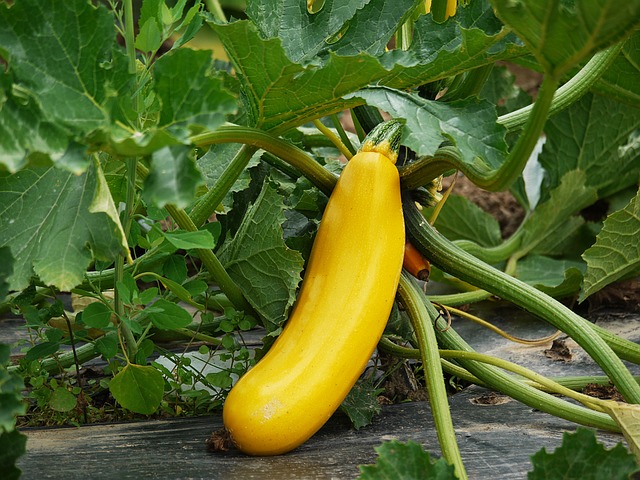Zucchini are usually very easy to grow. However, gardeners sometimes may face some problems even with these crops. Here is a list of the most common ones and advice on how to resolve them.
Choosing the wrong variety
Some zucchini varieties are more productive than others, and some are more disease- and pest-resistant. When selecting zucchini varieties for your garden, be sure to find disease and pest resistance whenever possible. Varieties with a high level of natural resistance often perform better and produce longer. ‘Tigress’, ‘Green Machine’ and ‘Yellow Fin’ are great choices.
Poor pollination
Zucchini and other squash are insect pollinated. This means that the insects are transferring the pollen from a separate male flower over to a female flower. The lack of pollinators may result in deformed fruits. You should plant lots of flowering herbs and annuals in and around your zucchini patch to attract pollinator insects. You can also choose a variety that doesn’t require pollination to produce fruits.
Squash bugs
Squash bugs are definitely the most difficult to deal with. They cause stippling, yellowing, and browning of the leaves. Squash bugs are resistant to most pesticides, so the best course of action is to check the leaves regularly to see if there are any bronze-colored, football-shaped eggs.
Irregular soil moisture levels
If plants are allowed to dry out between waterings, fruit production can be negatively impacted. Drought stress is never good for vegetable crops, and zucchinis require consistent soil moisture throughout the growing season. A 2-3 inch thick layer of mulch helps stabilize soil moisture levels and can reduce the need to irrigate during the hot summer months.
Soil quality
Zucchinis need soils that are high in organic matter with a soil pH around 6.5. If your pH is too far off that target mark, the plants may fail to produce quality fruit because the soil pH affects the availability of many different nutrients (more on soil pH here). You can also prevent many zucchini growing problems related to the soil by limiting the amount of nitrogen you add to your garden. Excessive nitrogen produces a lot of green leaves, often at the expense of good fruit production. Use only balanced, organic fertilizers on your zucchini patch and test your soil every few years.
Sun exposure
Zucchini plants need a minimum of six to eight hours of full sun per day. This means that lower light levels can result in long plants with pale green foliage and reduced yields. Select a full-sun site when planting your zucchinis.
Powdery mildew
Powdery mildew makes the leaves appear to be covered in a talcum powder-like coating. This is primarily an aesthetic issue, however severe cases can lead to reduced photosynthesis and reduced production. To prevent mildew you should space plants properly. Give each plant enough room so air can circulate and dry off wet foliage.
Source: savvygardening.com

